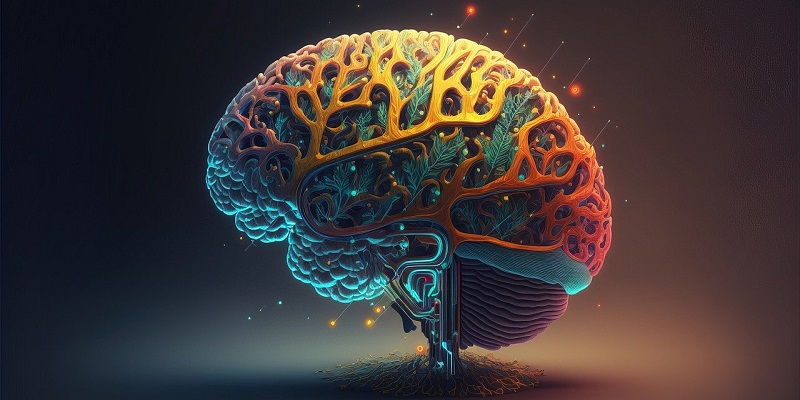The rapid advancement of artificial intelligence (AI) has sparked immense excitement and speculation about its potential to revolutionize industries, transform economies, and improve human lives. The McKinsey Global Institute estimates that this transformative power of AI could potentially contribute up to $4.4 trillion annually to the global economy. However, as AI continues to progress, it is crucial to understand its underlying concepts, potential capabilities, ethical considerations, and the safeguards necessary to ensure responsible development and deployment.
The Value Proposition of Artificial Intelligence
AI has emerged as a powerful tool with immense potential to drive economic growth and innovation across sectors. The estimated $4.4 trillion annual contribution to the global economy highlights the vast opportunities AI presents for businesses to optimize operations, personalize customer experiences, improve decision-making, and develop groundbreaking products and services.
Unlocking the Future: Artificial General Intelligence (AGI)
Beyond the current state of AI lies the concept of Artificial General Intelligence (AGI). AGI refers to a highly advanced form of AI with capabilities that surpass human performance across various tasks. It possesses the inherent ability to learn, advance its capabilities, and potentially surpass human intellect. While AGI is still a futuristic concept, its development holds immense potential for addressing complex challenges across multiple domains.
The Importance of AI Ethics
As AI becomes increasingly integrated into our lives, it is crucial to establish ethical guidelines to ensure that AI technologies operate in a manner that benefits humanity. AI ethics encompass principles aimed at preventing AI from harming humans. They involve critical considerations such as data collection practices, bias mitigation, transparency, explainability, fairness, and accountability in the decision-making processes of AI systems.
The Engine of Artificial Intelligence
At the heart of AI lies the algorithm — a set of instructions that allows computer programs to learn from data, recognize patterns, and accomplish tasks autonomously. By analyzing vast amounts of data, algorithms uncover valuable insights, improve predictive outcomes, and enable AI systems to adapt and self-improve.
Anthropomorphism and Human Perception of AI
Humans have a tendency to attribute human-like characteristics to non-human objects, a phenomenon known as anthropomorphism. In the context of AI, anthropomorphism can lead to unrealistic expectations and beliefs, such as perceiving a chatbot as more humanlike and aware than it truly is. This can have significant implications for the ethical development and responsible use of AI.
Generative AI: Unleashing Creativity through Artificial Intelligence
Generative AI, a content-generating technology, utilizes AI algorithms to create text, videos, computer code, or images. By training on large datasets, generative AI identifies patterns and generates unique responses, often exhibiting similarities to the source material. While generative AI opens new avenues for creativity and productivity, its implementation necessitates careful consideration of potential ethical implications.
Guardrails: Safeguarding Responsible AI Usage
To ensure responsible AI usage, guardrails are necessary to establish policies and restrictions that govern AI models. These guardrails aim to handle data responsibly, prevent the generation of disturbing or harmful content, and maintain the ethical boundaries of AI systems. Implementing robust guardrails is crucial to protect individuals and society at large from the potential risks associated with AI.
Machine Learning: Empowering AI to Learn and Evolve
Machine learning (ML), a key component of AI, enables computers to learn from experience without explicit programming. By utilizing training sets, ML algorithms improve their predictive capabilities, identify patterns, and make data-driven decisions. Harnessing the power of ML allows AI systems to continuously evolve and adapt to dynamic environments.
Natural Language Processing: Interpreting Human Language with AI
Natural Language Processing (NLP) is a branch of AI that enables computers to understand and interact with human language. By utilizing machine learning and deep learning techniques, NLP algorithms analyze linguistic patterns, statistical models, and learning algorithms to accurately interpret and respond to human communication.
Transformer Models: Understanding Context and Meaning Effortlessly
Transformer models, a neural network architecture in deep learning, excel at understanding context by analyzing relationships within data. Unlike traditional approaches that focus on one word at a time, transformer models enable AI systems to comprehend entire sentences or parts of images, capturing the nuances of context and meaning. This breakthrough advancement leads to improved language understanding, visual recognition, and intelligent decision-making.
The potential of AI to revolutionize industries and catalyze economic growth is immense. However, the responsible adoption and development of AI necessitates a deep understanding of its concepts, ethical considerations, and the implementation of necessary safeguards. As the field of AI continues to progress, it is crucial to strike a balance between unlocking AI’s potential and prioritizing ethics to ensure that this transformative technology benefits humanity while minimizing potential risks.

